A few months ago a local tea friend Zach and myself went to the Dayi store in Shum Shui Po to try a few teas. I also brought two things along for this tasting:
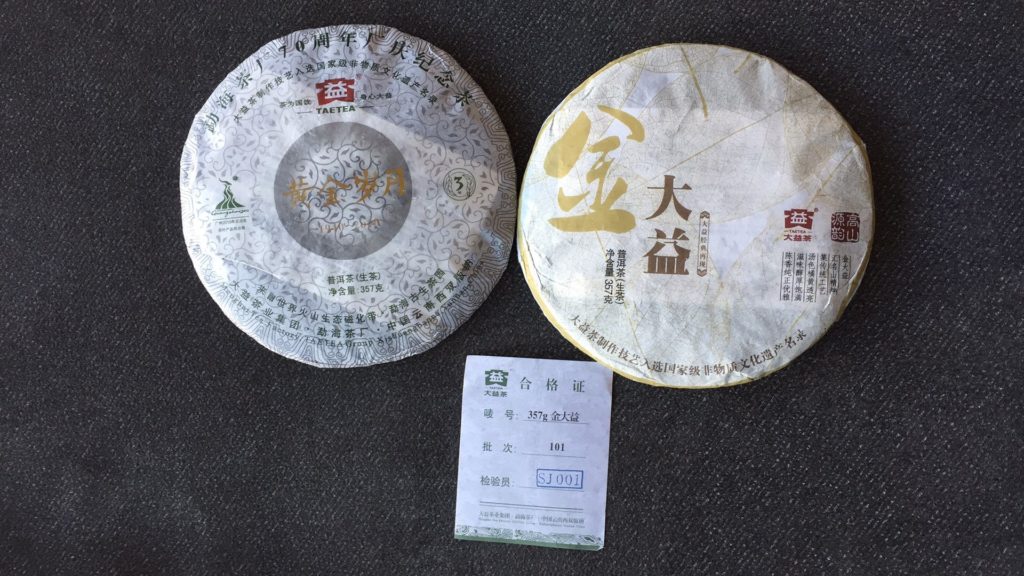 Now at first glance this may look like a Gold Dayi on the right and the Huangjin Suiyue on the left – except these two are both fakes I bought from Taobao, deliberately, so that we can check out what fake teas are made of these days.
Now at first glance this may look like a Gold Dayi on the right and the Huangjin Suiyue on the left – except these two are both fakes I bought from Taobao, deliberately, so that we can check out what fake teas are made of these days.
Those who are wrapperologists can tell you right away that the left side one is fake – because the real one has gold words that are shiny, while this one’s words in the center are not. The right side one though, at least looking at a picture like this, isn’t nearly as obvious. In fact, when we put it against the real deal at the Dayi store, it’s not immediately clear which one is real – the real one is a little brighter in colour, but this isn’t the sort of thing you’d notice unless you put a real and a fake side by side.
However, one thing was obvious:
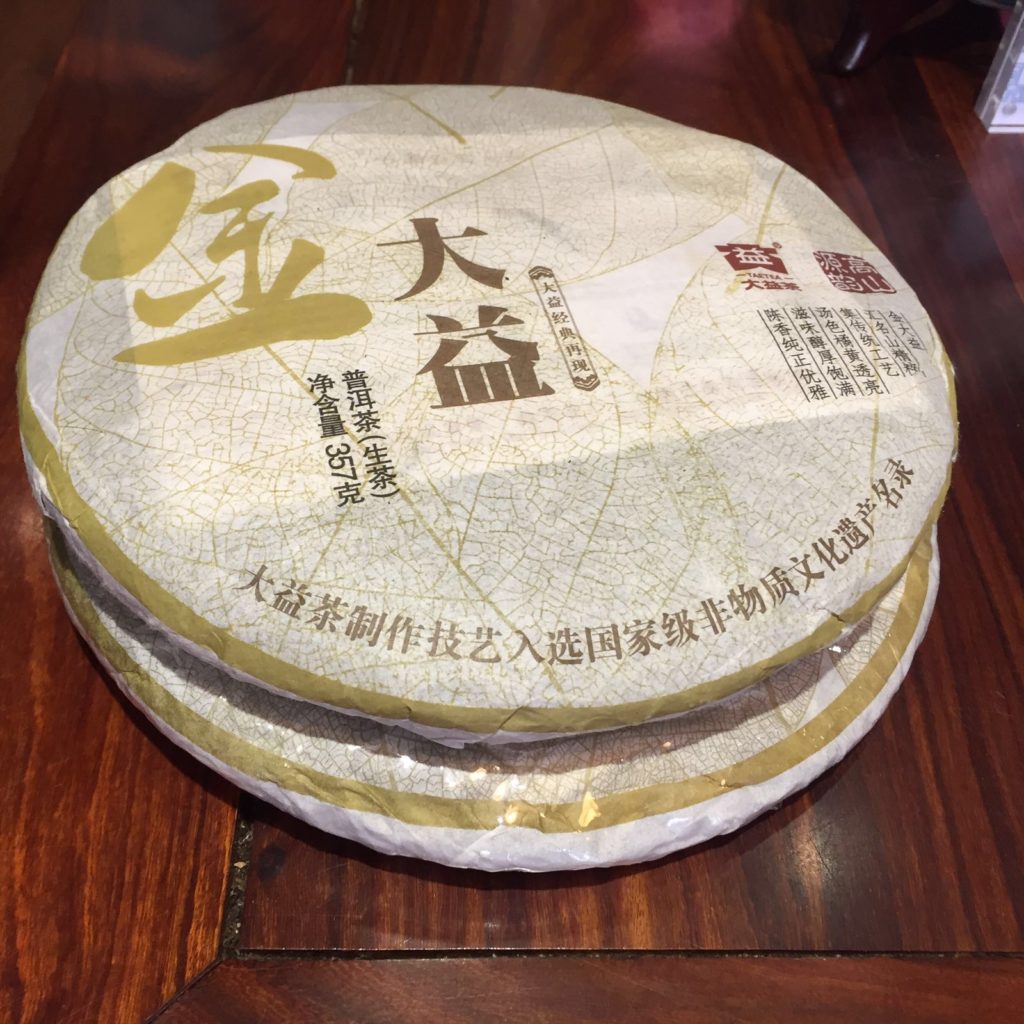 The real cake was a lot bigger than the fake one – and in fact, if you weigh the fake one, it only came in at 330g or so. For an older cake this is entirely possible – shrinkage happens a little, and also bits and pieces breaking off the edge. For a newish cake like this though, being off by 30g is not possible.
The real cake was a lot bigger than the fake one – and in fact, if you weigh the fake one, it only came in at 330g or so. For an older cake this is entirely possible – shrinkage happens a little, and also bits and pieces breaking off the edge. For a newish cake like this though, being off by 30g is not possible.
The back looked ok – might look a little iffy for the wrapperologists out there, but once again, not screaming fake:
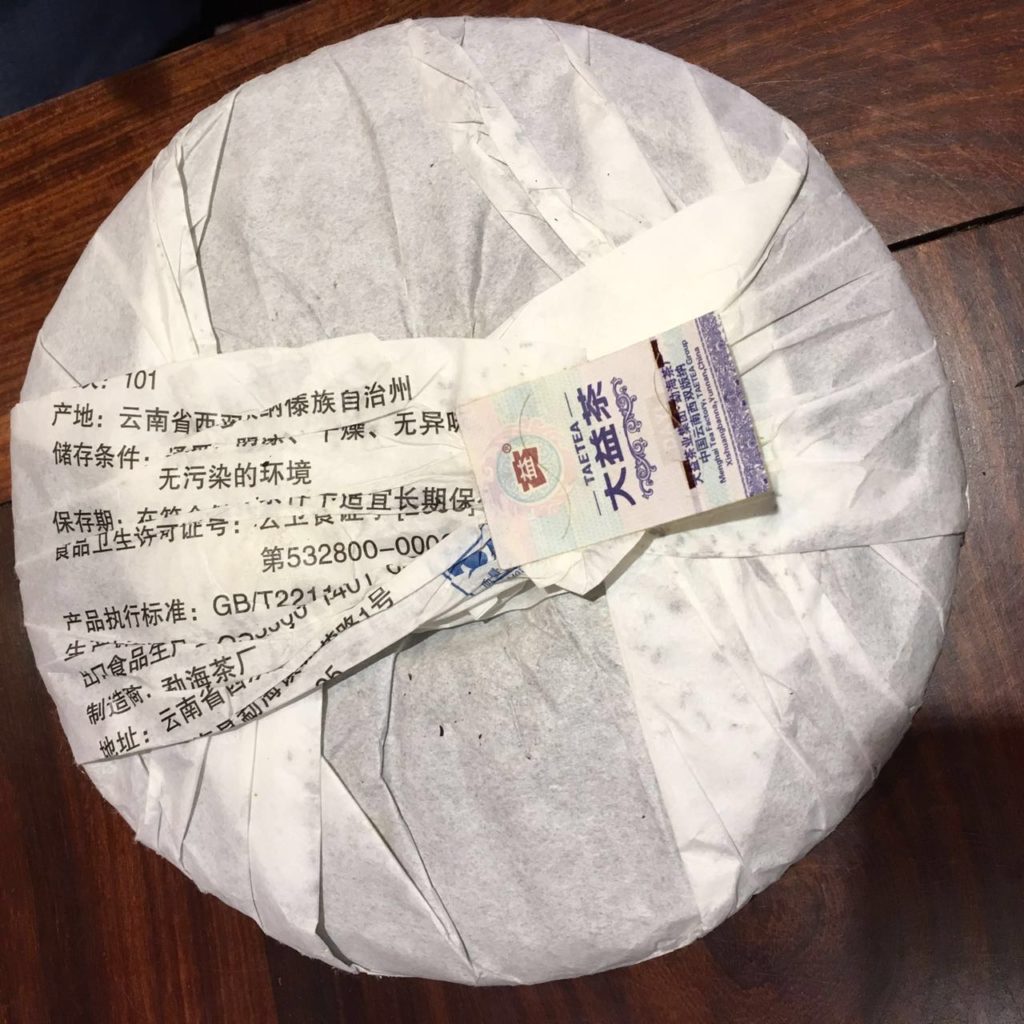 Put under a black light, the label doesn’t exactly pass the test:
Put under a black light, the label doesn’t exactly pass the test:
 There’s a bit of that neon glow, but compared to the real thing, it’s obvious this is a fake
There’s a bit of that neon glow, but compared to the real thing, it’s obvious this is a fake
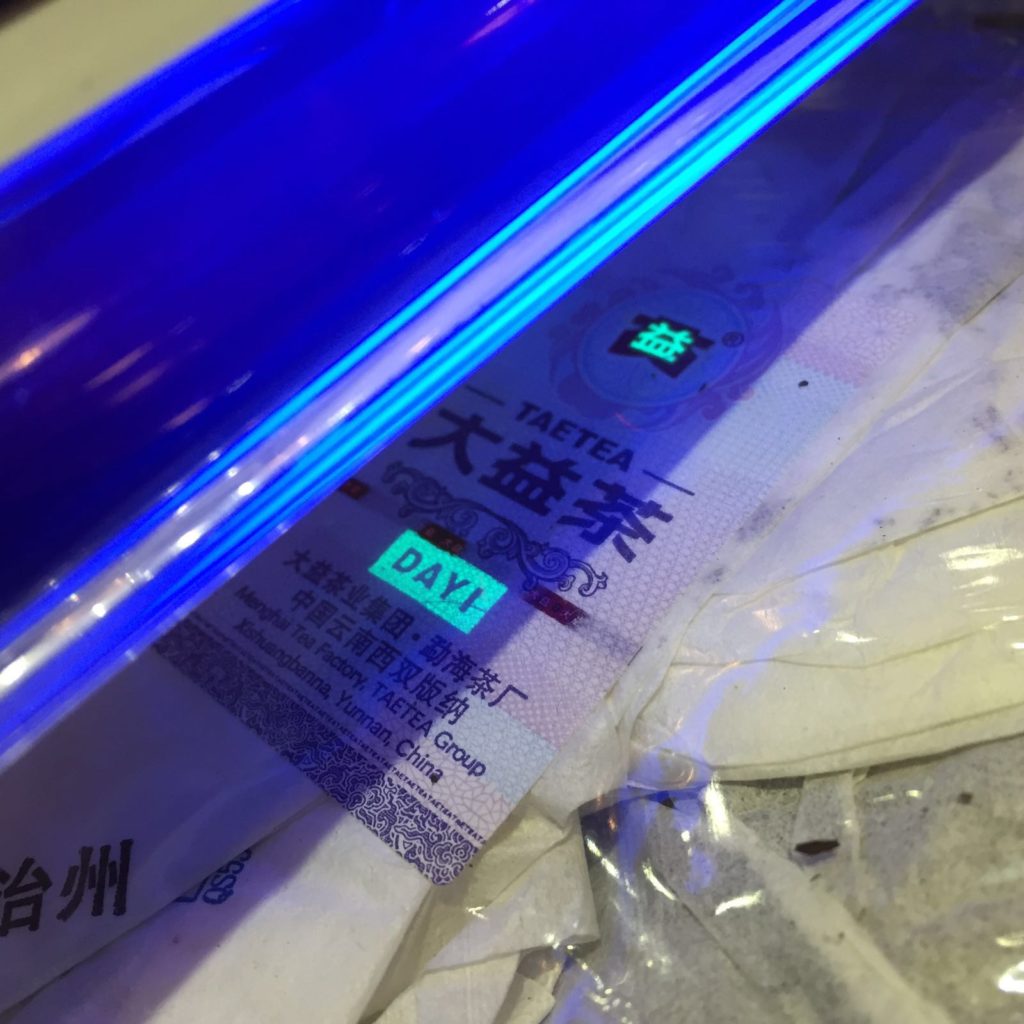 You can’t do any of these unless you already paid for the fake though, so obviously, don’t buy Dayi from Taobao that are obviously too cheap to be true.
You can’t do any of these unless you already paid for the fake though, so obviously, don’t buy Dayi from Taobao that are obviously too cheap to be true.
The cakes themselves also look markedly different once unwrapped. The fake/real differences are obvious.
The taste, I have to say, was no contest. This isn’t 2004, when it was more profitable to sell decent teas under the Dayi label than your own. These days if you have decent tea, selling under your own label probably would get you more money than trying to fake the difficult-to-replicate packaging that Dayi uses. Back in the day if you were a no-name brand, you’ll have trouble moving your tea for 30 RMB a cake. These days, if you have a nice story, you can easily sell it for hundreds of RMB a cake without the trouble of faking. So, nobody does it with nice tea anymore. Instead, you get crap – which is exactly what these two fake cakes were.
The story was similar for the Huangjin suiyue, so I won’t repeat the same slew of pictures – we also didn’t take as many of that one because it was an even lower quality fake that didn’t really pass muster once you hold it in your hands. The Gold Dayi you have to do some comparison to be sure the fake is, well, a fake. Until you open the wrapper, anyway, then the dust and the terrible compression will tell you all you need to know.

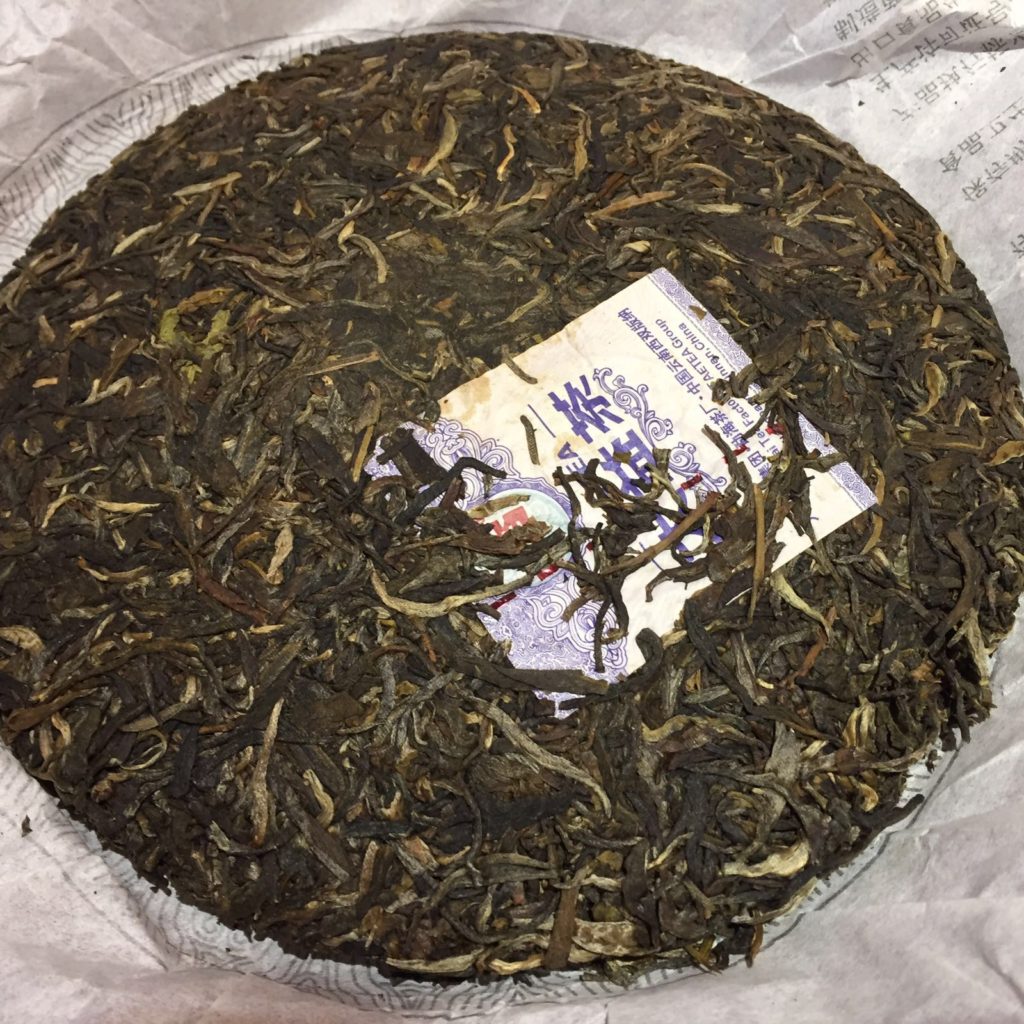

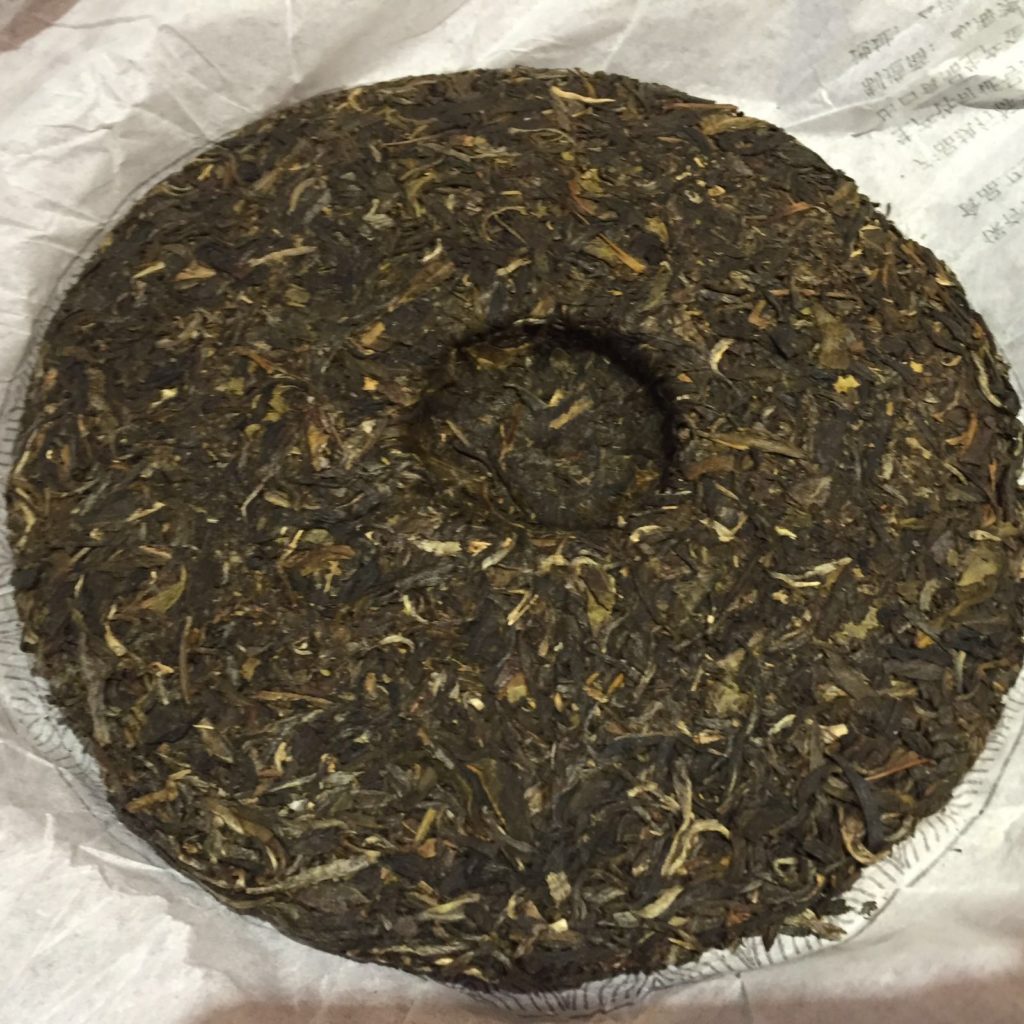

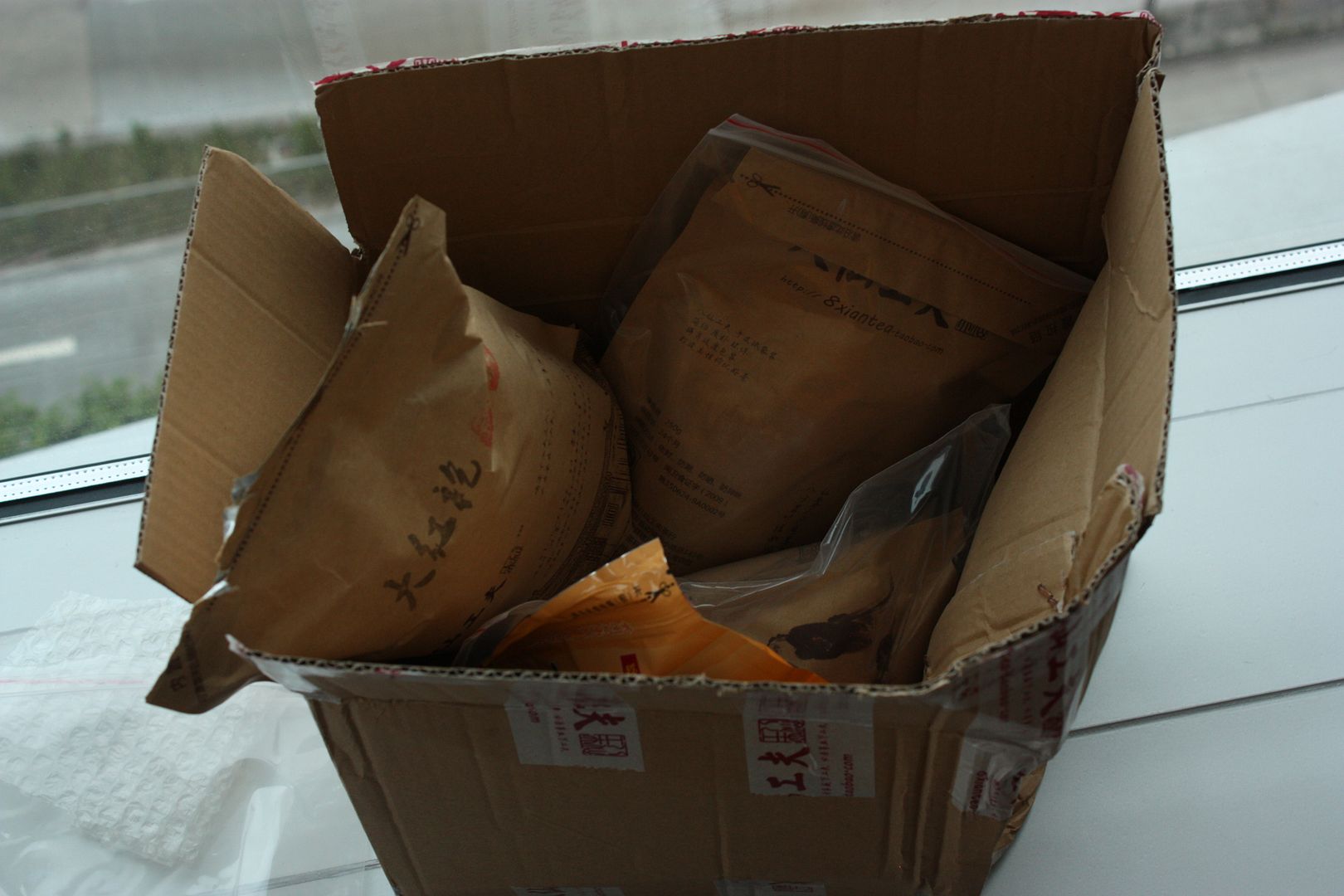
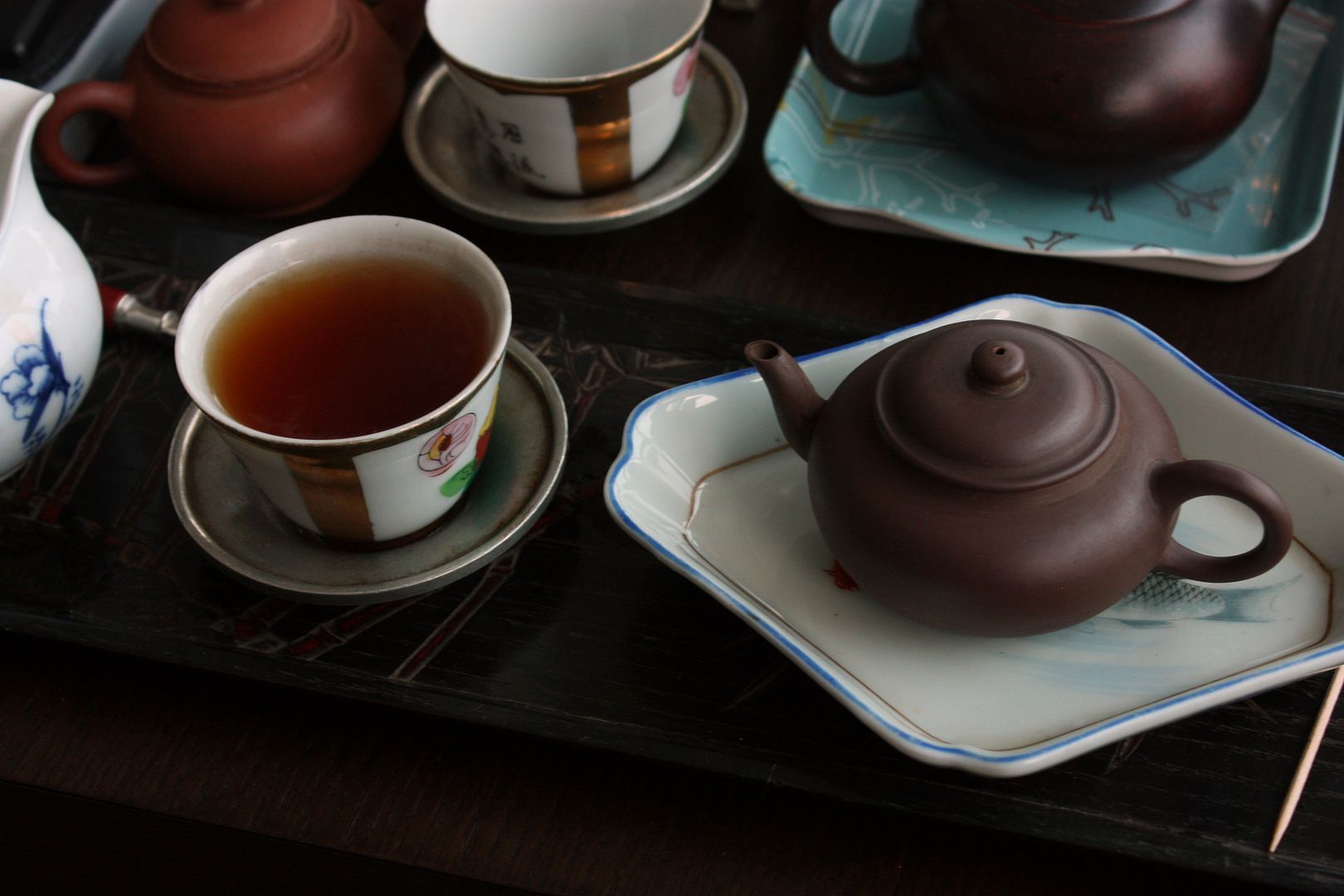
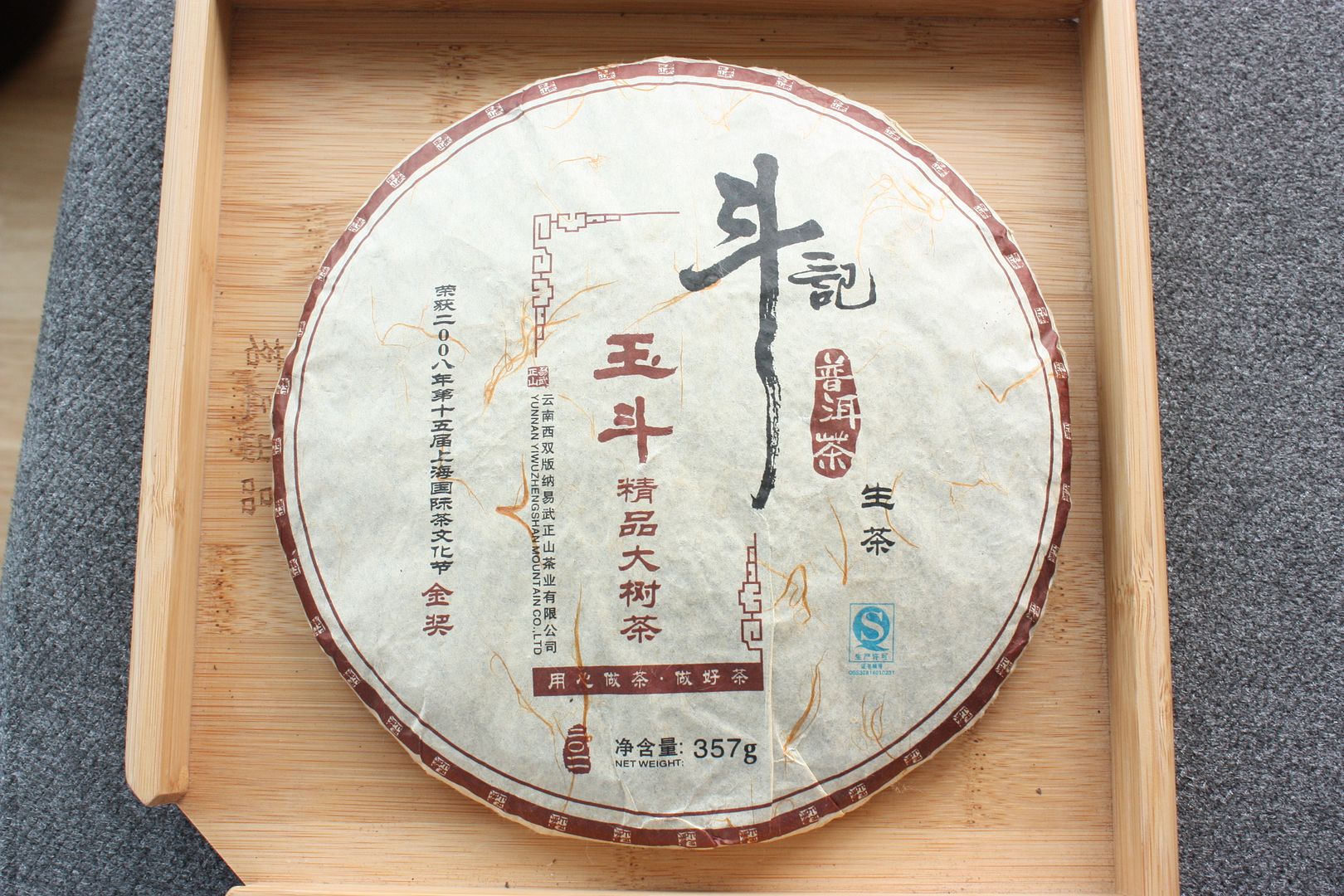

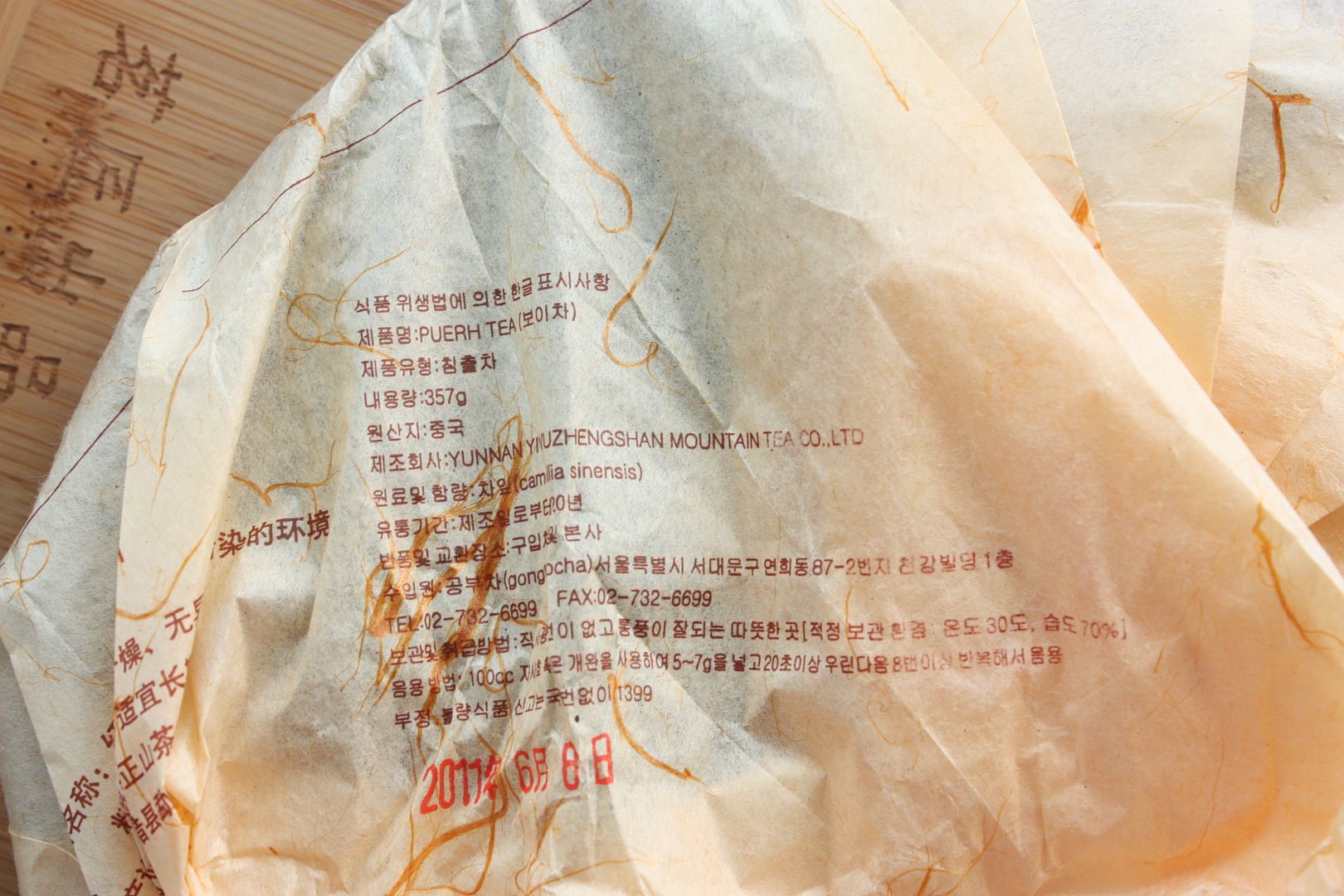
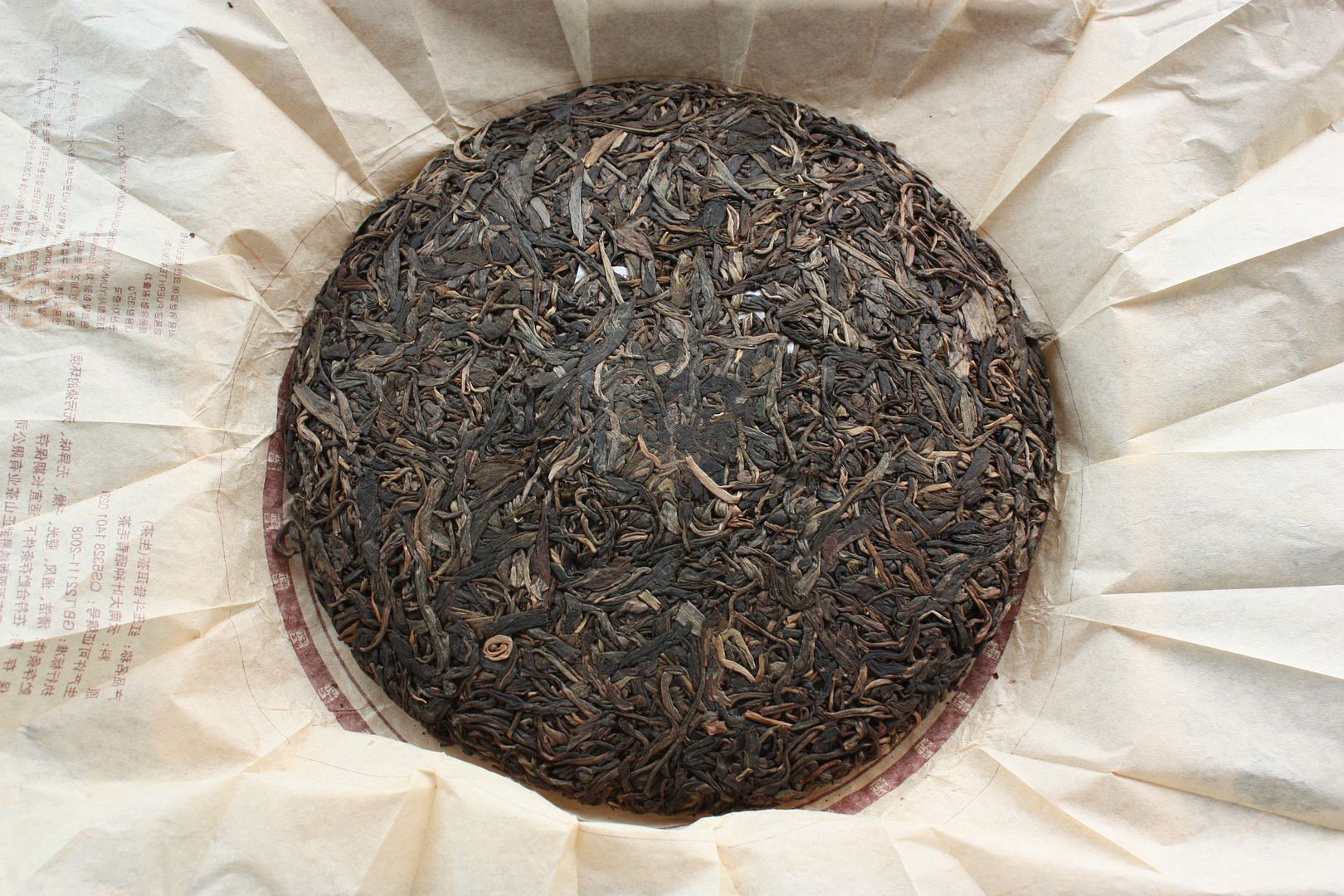

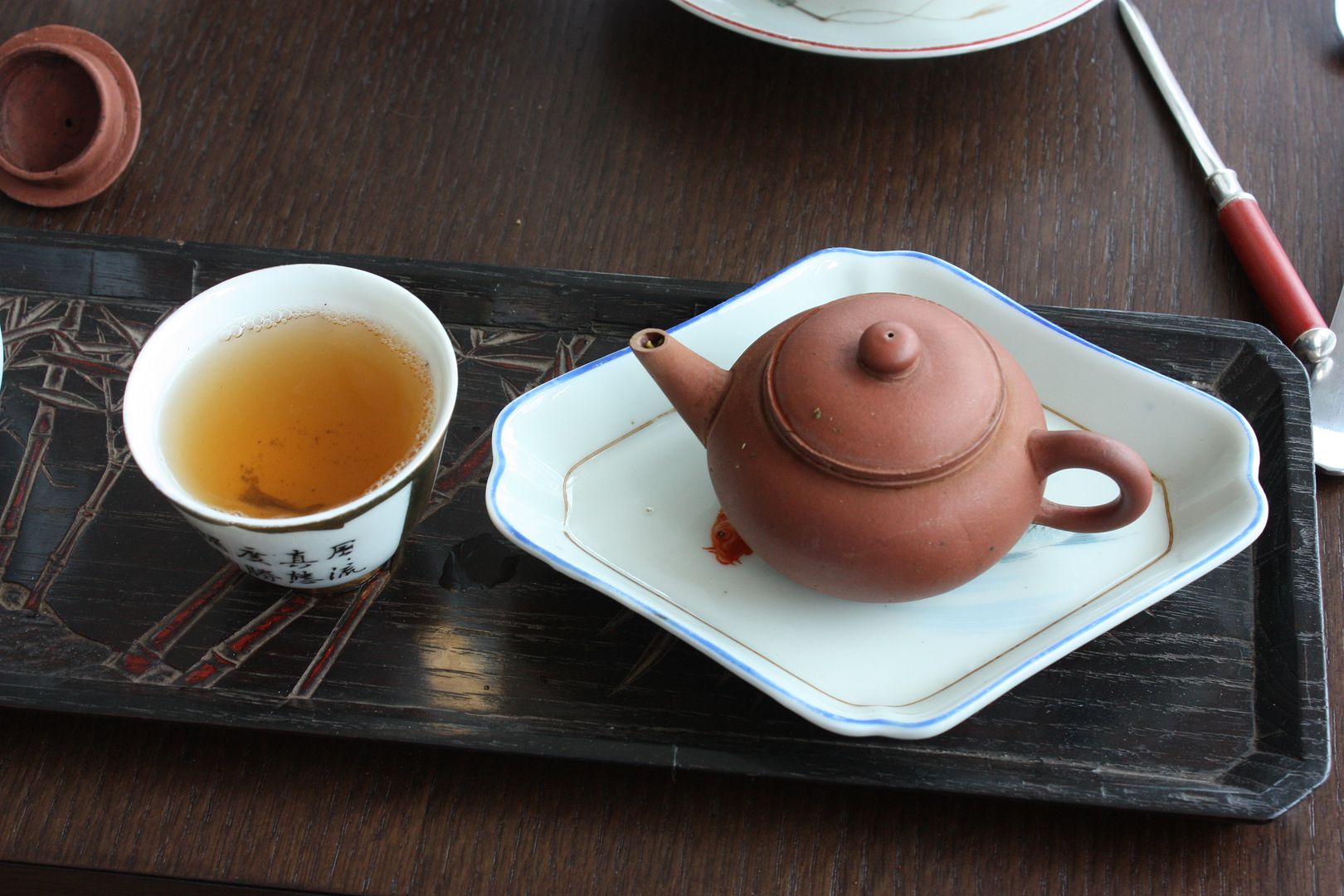
Yeah whisky prices have been leaking too, as well as luxury watches. I wrote a post maybe a decade ago…